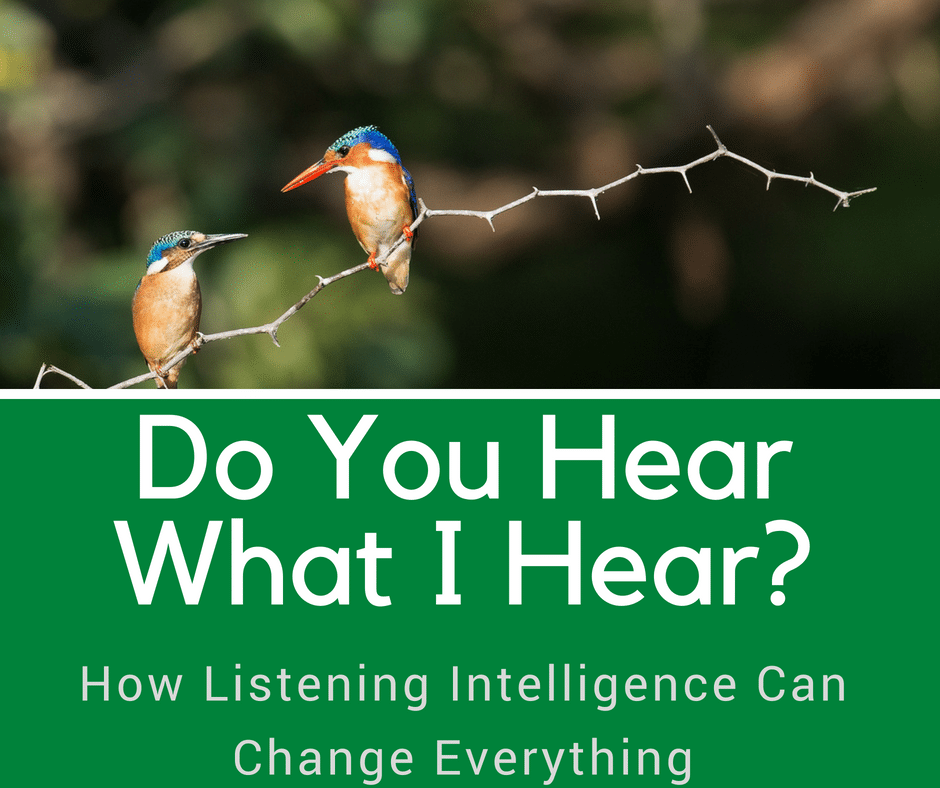By Sue Brundege, Director of Client Services and Senior Facilitator
Photo by Vincent van Zalinge
Four people walk into a meeting… (I know, it sounds like the start of a joke). They are all engaged in the same initial planning conversation about a major companywide software upgrade. Yet, if we could listen to the thoughts of those four people as they leave the meeting, we might hear something like this:
Person 1: “That rollout plan sounds too optimistic to me. I’m worried my staff will freak, given how busy they already are.”
Person 2: “Boy, I learned some hard lessons the last time I was involved in a software upgrade. I hope we don’t repeat them.”
Person 3: “We’re going to need to do a cost-benefit analysis before we do anything else. We didn’t even talk about criteria for deciding what platform we’ll use.”
Person 4: “Think what we’ll be able to do with a new system like this! We could create new reports and have online user groups so we don’t need to send so many emails.”
Why are these thoughts so different? Because we each have default ways in which we listen for information, called listening habits. Most of us are unaware of our own listening habits, which work as filters to help us organize the way we take in information. This can have huge cost and productivity implications for organizations. According to SIS International Market Research, 70 percent of small to mid-size businesses claim that ineffective communication is their primary problem. SIS also reports that a business with 100 employees spends an average downtime of 17.5 hours per week clarifying communication. This translates to an annual cost of $524,569!
Being aware of your own listening habits, as well as those of others, creates Listening Intelligence, which in turn leads to more cohesive teams, better collaboration, higher productivity, and greater job satisfaction. When we better understand what others are likely to listen to in any given conversation, we can modify how we speak with them to maximize their understanding.
We’ve been using a listening assessment that was developed by Boulder, CO-based Brio Enterprise, called the ECHO Listening Profile. ECHO stands for “Effective Communication for Health Organizations,” because ultimately more effective listening makes for higher-functioning organizations. In the ECHO profile, there are four primary listening habits:
- Connective Listening – paying attention to how information may impact others
- Reflective Listening – noticing how information may relate to one’s own knowledge and experience
- Analytical Listening – zeroing in on facts, figures, quality, and objective outcomes
- Conceptual Listening – focusing on big ideas, possibilities, and how ideas connect to one another
We each tend to listen using these habits in a particular sequence. For example, I might start out listening for how others could be affected by the topic, and then shift to listening for new ideas and possibilities. Others may listen for the facts, figures, and outcomes, then think about how that information personally relates to their own work. The order in which we tend to listen using these habits combine to create our own Listening Profile (altogether there are 41 unique Listening Profiles). There is no listening habit or profile that is better than any other. In fact, we need all four types of habits to ensure that all aspects of an idea, problem, or decision are heard and addressed.
Listening profiles fit in nicely with the concept of psychological safety, which is the belief that it’s safe to take a risk or make a mistake on your team. Think back to the four people at the beginning of this post. Each one has a valuable perspective that the team could address for a successful software upgrade. But if their organization isn’t aware of different listening styles and the value of each, some people might be reluctant to share their thoughts and concerns because they don’t want to give a different perspective than their boss or colleagues.
We’ve been fascinated by the insights people gain when they learn about their own unique listening habits and how, by adjusting what habit they use in a given situation, they can resolve conflicts, build a more cohesive team, and actually get more work done!
